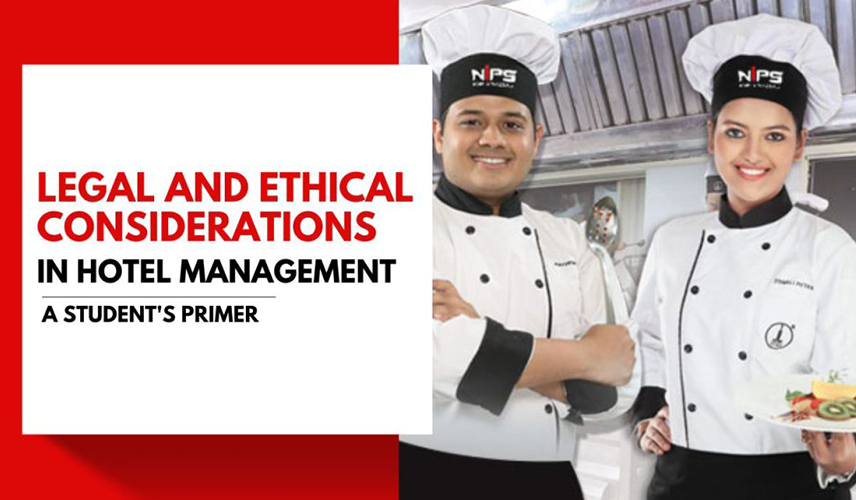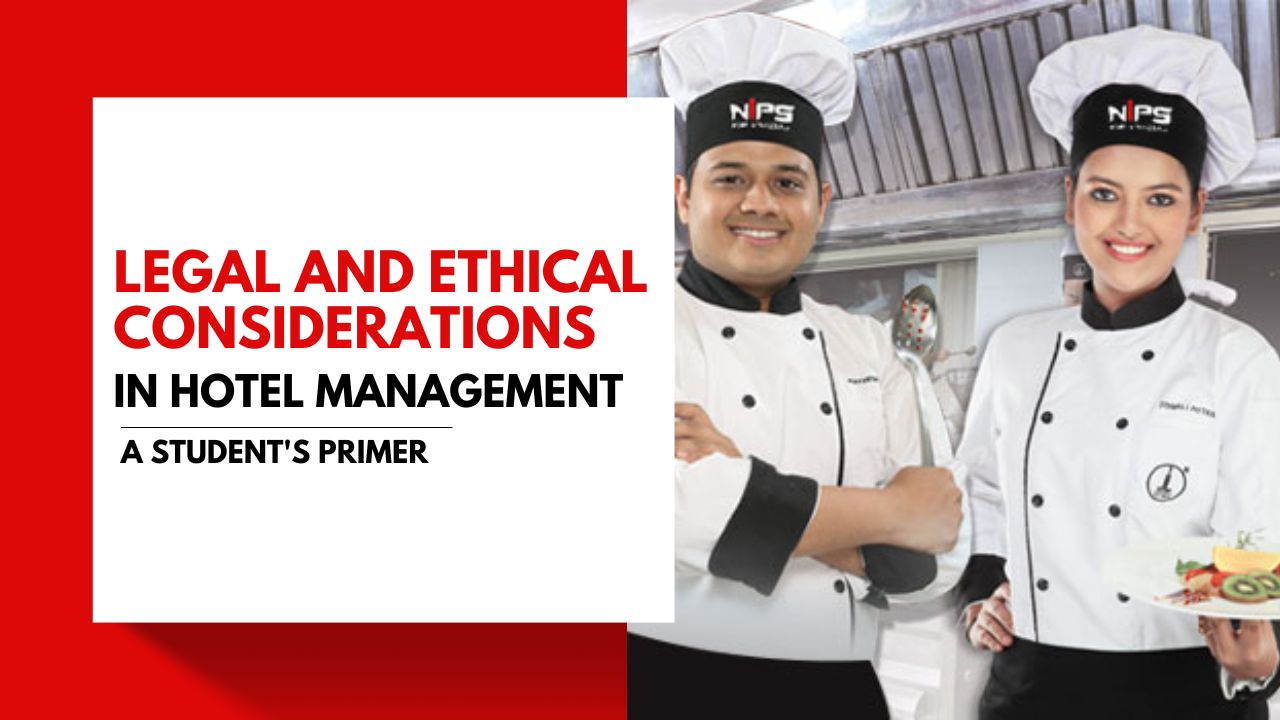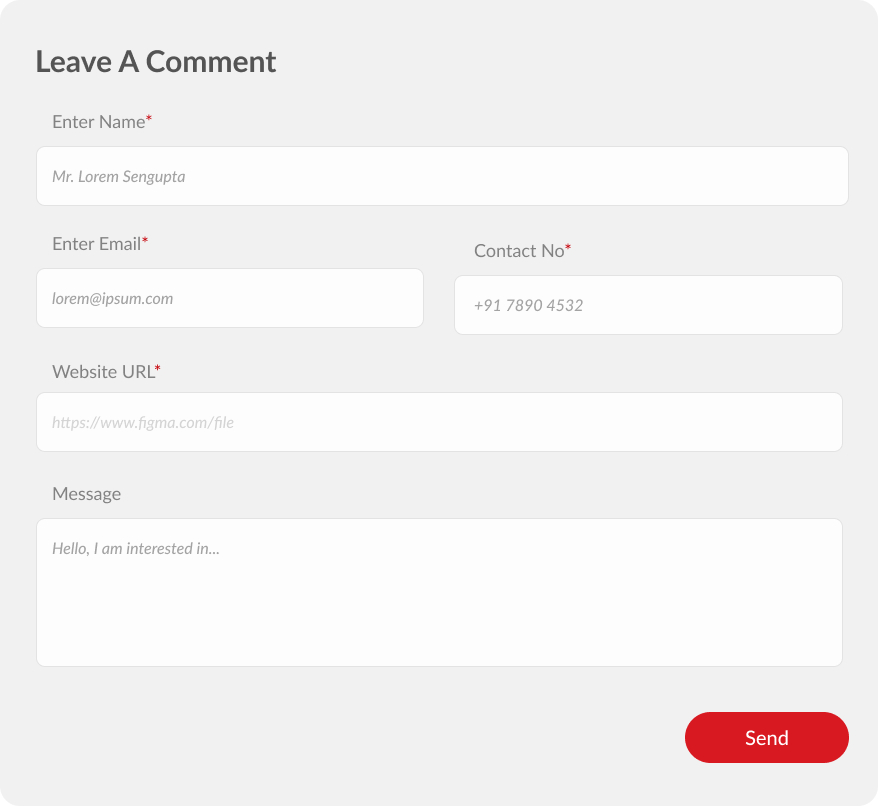
-
By:admin
-
Hotel Management
-

( 0 )
Legal and Ethical Considerations in Hotel Management: A Student’s Primer
Navigating the complexities of hotel management requires a firm grasp of legal and ethical considerations.
Leading colleges like NIPS Hotel Management prioritize these facets, preparing students to handle real-world challenges.
As an aspiring hotel manager, understanding the laws and ethics in hospitality is key. It shapes your decision-making and sways the hotel’s reputation and prosperity.
Let’s understand the legal and ethical considerations that will steer your hospitality career.

Employment Law
Employment law governs employer-employee relationships in hospitality. Knowing these regulations ensures you treat staff fairly, follow protocols, and avoid disputes.
Employment legislation addresses aspects like compensation, hours, discrimination, and workplace safety.
You need fluency in minimum wage rules, overtime pay, and benefits packages.
For example, appropriately compensating overtime boosts morale and productivity beyond basic compliance.
Understanding anti-discrimination statutes helps cultivate inclusive, respectful workplaces.
Maintaining secure work environments is compulsory, including regular safety training refreshers.
Guest Rights
Guest rights refer to the legal protections and entitlements of hotel visitors. Upholding these rights is essential for nurturing trust and return visits.
Guests have rights to safety, privacy, and truthful information about amenities.
Robust security protections like electronic key cards and surveillance technology are thus critical.
Privacy policies should transparently detail data collection and usage while underscoring protections.
Accurate marketing materials ensure realistic expectations, preventing dissatisfaction from misleading claims.
Licensing and Regulations
Licenses and regulations dictate hotels’ operational standards. Abiding by these rules avoids penalties and enables smooth functioning.
Hotels must adhere to various local, state, and federal regulations, spanning health codes, fire safety, alcohol licensing, and more. Routine health inspections verify the facilities meet sanitation requirements.
Following fire safety rules like functional extinguishers and unobstructed exits is imperative for visitor well-being.
If serving alcohol, obtaining required licensing and enforcing age laws is compulsory.
Staying current on regulatory shifts is key to avoiding disruptions or fines.
Ethical Marketing
Ethical marketing means promoting your property truthfully and conscientiously.
Honest marketing cultivates trust and long-term guest relationships. This entails providing accurate information about amenities and avoiding misleading claims.
Transparent pricing and clear communication around policies like cancellations nurture credibility.
For instance, plainly listing room rates, fees, and cancellation rules on your website curtails confusion and disputes.
Touting your sustainability efforts and community commitments can boost the hotel’s appeal to values-driven travelers.
Environmental Responsibility
Environmental responsibility means implementing sustainable practices to minimize ecological impacts. Sustainability grows more important to visitors and regulators alike.
Executing eco-conscious programs like energy and waste reduction along with local sourcing benefits the planet and distinguishes your property.
Tactics like LED lighting, low-flow plumbing, and recycling schemes are practical steps.
For example, efficient appliances and renewable energy shrinks carbon footprints and expenses.
Encouraging guest participation in reuse programs can further champion sustainability.
Final Thoughts
Institutes like NIPS Hotel Management have deeply embedded ethics and law within their programs, equipping graduates to navigate the intricate legal and ethical fronts of hospitality.
This integration primes students with the skills to make ethical decisions and lead responsibly.
Selecting an institute that reflects these values is important for students. As you start your career, remember that fluency in legal and ethical policies will set you apart and drive your success.





















